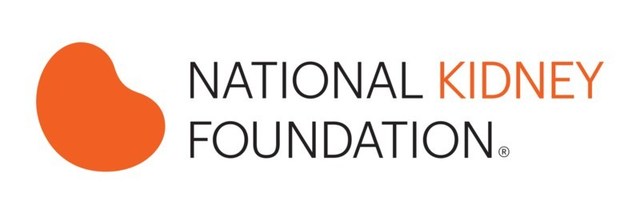A new study released today in the National Kidney Foundation’s American Journal of Kidney Diseases (AJKD) shows that the drug canagliflozin reduces the risk of adverse cardiovascular and kidney outcomes in people with type 2 diabetes
|
NEW YORK, Sept. 21, 2020 /PRNewswire/ -- A new study released today in the National Kidney Foundation‘s American Journal of Kidney Diseases (AJKD) shows that the drug canagliflozin reduces the risk of adverse cardiovascular and kidney outcomes in people with type 2 diabetes, especially for those patients at higher risk of kidney failure. The post-hoc analysis of the Phase 3, randomized, placebo-controlled CANVAS Clinical Trial Program assessed the effect of the SGLT2 inhibitor canagliflozin on these outcomes in participants with different levels of risk for chronic kidney disease, defined by the Kidney Disease: Improving Global Outcomes (KDIGO) classification system. The study is titled "Relative and Absolute Risk Reductions in Cardiovascular and Kidney Outcomes With Canagliflozin Across KDIGO Risk Categories: Findings from the CANVAS Program" and will be released today in AJKD. "The KDIGO classification of chronic kidney disease is a useful tool for informing prognosis as it allows us to classify people according to their risk of kidney failure and other adverse outcomes," said lead author Dr. Brendon Neuen, MBBS, MSc, of Royal North Shore Hospital and the George Institute for Global Health, UNSW Sydney, Australia. "However, it has not been widely used to estimate potential benefits with new treatments, such as SGLT2 inhibitors. We found that the KDIGO classification of chronic kidney disease is clinically useful for identifying people who might benefit most from treatment with canagliflozin in terms of protection against cardiovascular events and progression of kidney disease." SGLT2 inhibitors are a new treatment available to patients that can reduce the risk of cardiovascular events, particularly heart failure, as well as slow the progression of kidney disease, with emerging evidence that benefits are similar in people with and without diabetes. "These data demonstrate that the widely used KDIGO classification for chronic kidney disease can be used to identify individuals who might derive greater absolute benefits with respect to cardiovascular and kidney protection with canagliflozin," said co-author Professor David Wheeler, MD, of the George Institute for Global Health, UNSW Sydney, Australia, and the Centre for Nephrology, University College London, United Kingdom. "Patients at high or very high risk should be prioritized for treatment as the absolute benefits are likely to be greatest in these individuals." "We must now ensure that people who might benefit most from treatment with SGLT2 inhibitors are able to access it," Dr. Neuen said. "This study demonstrates that we can identify these patients using a widely used and validated risk stratification tool." "This study provides further evidence that the SGLT2 inhibitors have the potential to dramatically improve outcomes for a significant proportion of people with chronic kidney disease," said Kerry Willis PhD, National Kidney Foundation Chief Scientific Officer, "It also highlights the importance of using risk prediction tools to identify those most in need of interventions to reduce their cardiovascular and kidney risk." To learn about the study and the authors please go to https://www.ajkd.org/article/S0272-6386(20)30923-9 About the American Journal of Kidney Diseases About NKF Clinical Digest – COVID-19 Kidney Disease Facts The National Kidney Foundation (NKF) is the largest, most comprehensive, and longstanding patient-centric organization dedicated to the awareness, prevention, and treatment of kidney disease in the U.S. For more information about NKF, visit www.kidney.org Facebook.com
SOURCE The National Kidney Foundation |





